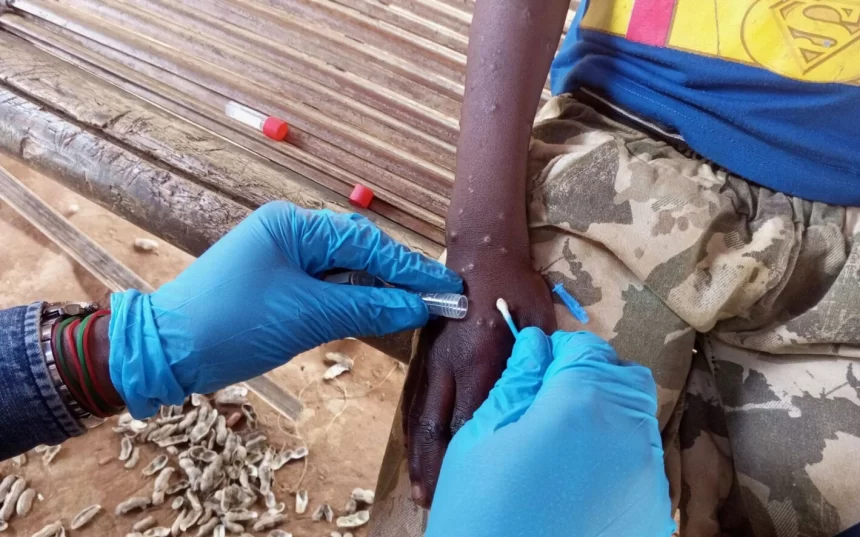By Nakiwala Barbra.
The World Health Organization (WHO) has declared a public health emergency of international concern due to the outbreak of a highly contagious disease called mpox in parts of Africa.
This disease, formerly known as monkeypox, has killed at least 450 people in the Democratic Republic of Congo and has now spread across central and east Africa. The new variant of the disease is spreading fast and has a high fatality rate, causing great concern among scientists.
The disease is transmitted through close contact such as sex, skin-to-skin contact, and talking or breathing close to another person. It causes flu-like symptoms and skin lesions and can be fatal, with a death rate of four in 100 cases.
The outbreak is caused by a deadly variant of mpox known as Clade 1, which has killed up to 10% of those infected in previous outbreaks. A new variant called Clade 1b has emerged, labeled “the most dangerous yet” by scientists. Since the beginning of this year, there have been more than 13,700 cases and at least 450 deaths in the DR Congo. The disease has also been detected in other African countries including Burundi, the Central African Republic, Kenya, and Rwanda.
The declaration by the WHO is expected to lead to increased research, funding, and international public health measures to combat the outbreak. Immediate steps are deemed necessary to contain and eliminate this threatening outbreak.
In a previous outbreak in 2022, the milder Clade 2 strain of mpox spread to nearly 100 countries, leading to more than 87,000 cases and 140 deaths. That outbreak was largely concentrated among men who had sex with men and was brought under control by vaccinating vulnerable groups.
On Tuesday, the Africa Centres for Disease Control and Prevention declared a public health emergency and warned that urgent steps are required to contain the current outbreak, failing which, it could spiral out of control.

